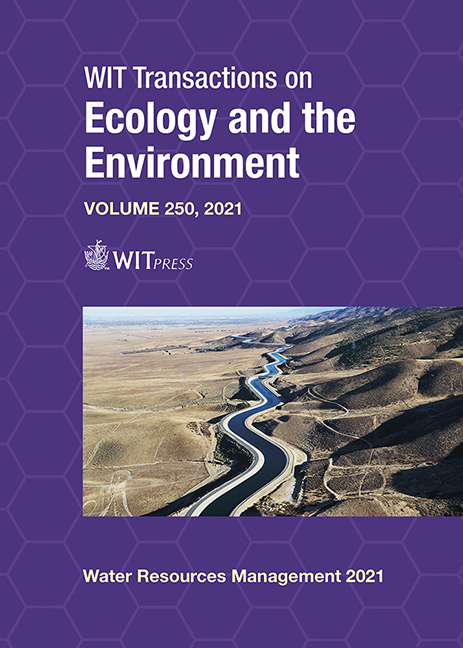FILTRATION OF DISSOLVED ORGANIC NUTRIENTS FROM FISH FARM WASTEWATER USING A MACROALGAE BIOFILTER
Price
Free (open access)
Transaction
Volume
250
Pages
8
Page Range
73 - 80
Published
2021
Size
257 kb
Paper DOI
10.2495/WRM210071
Copyright
Author(s)
JACK R. HALL, GEORG MARTIN
Abstract
Intensive animal aquaculture damages the environment by releasing large quantities of nutrients which drives eutrophication in aquatic ecosystems. Macroalgae are efficient in uptaking nutrients as they grow with past studies suggesting their integration into aquaculture systems as a means to improve wastewater quality. This study was designed to assess the feasibility of using macroalgae as a biological filtration system for the removal of dissolved nutrients found in finfish farm wastewater. To test this, an experimental fish farm and mesocosm system was established on the northern coast of Saaremaa island, West Estonian archipelago. The green algae Ulva intestinalis was selected as a good candidate to assess the efficacy of a macroalgae biofiltration system to uptake nutrients. The results obtained show at best a 18–25% reduction in waste water nutrient concentrations for the nitrogenous compounds nitrite and nitrate for mesocosms stocked with macroalgae compared with the control. The system experienced an average 60% reduction in nitrogen and phosphorus concentrations in wastewater outflow compared to concentrations present within the finfish mesocosm. Additionally, the subsequent biomass gain of the incubated macroalgae species Ulva intestinalis is reported to be 4% per day at its maximum rate. The results obtained in this study indicate that Ulva intestinalis can be integrated into aquaculture systems as a nitrogen biofilter. In addition, the macroalgae biomass produced may offer aquaculture operations an additional income stream improving farm economics.
Keywords
aquaculture, biofilter, macroalgae, nutrients, bioremediation, ulva, nitrogen, IMTA





